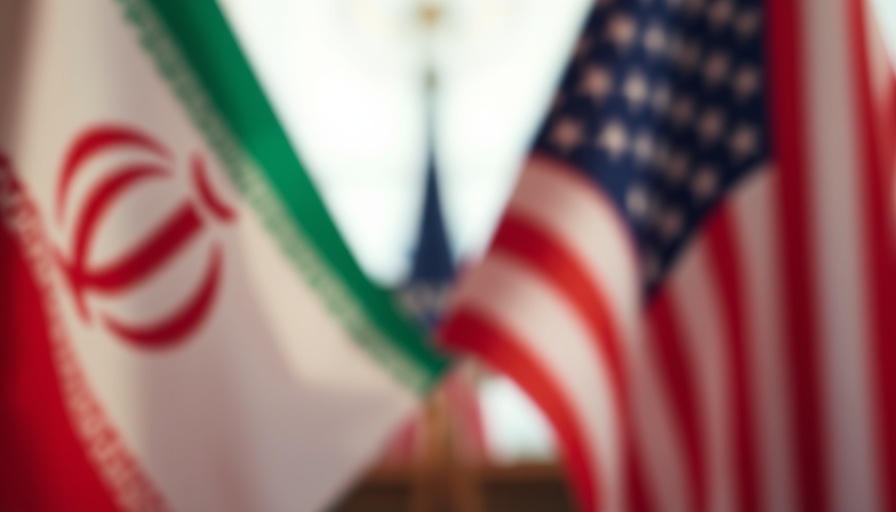
The Stakes Are High: Navigating the Nuclear Talks
The ongoing negotiations between Iran and the United States represent a crucial juncture in international relations, especially concerning nuclear capabilities. As discussions resume in Muscat, involving top negotiators including Iranian Foreign Minister Abbas Araqchi and U.S. envoy Steve Witkoff, both sides are aware that progress is vital to avoid escalating tensions that could lead to military confrontation. However, their vastly different red lines pose significant hurdles.
Understanding the Clashing Red Lines
Washington has adopted a hardline stance, demanding complete dismantlement of Iran's nuclear facilities. Witkoff has made it clear that U.S. policy is anchored in a firm “no enrichment” approach, directly conflicting with Iran’s insistence on maintaining certain aspects of its nuclear program for civilian purposes. This dichotomy was further complicated by President Trump's positioning ahead of his Middle East trip, suggesting that political maneuvering plays a key role in the discussions.
Historical Context: The Long Road to Diplomacy
The roots of the Iran-U.S. nuclear dispute stretch back decades, marked by a history of sanctions, geopolitical tensions, and broken agreements. The 2015 nuclear deal, formally known as the Joint Comprehensive Plan of Action (JCPOA), represented a significant diplomatic effort to curb Iran's nuclear ambitions in exchange for sanctions relief. However, the U.S. withdrawal from the agreement in 2018 has led to increased hostilities and distrust between the nations, solidifying the present impasse despite mutual interests in diplomatic resolution.
Future Insights: The Path Forward
If these talks yield positive results, the implications could reshape not only Iranian-American relations but also broader Middle Eastern dynamics. Success may lead to re-establishing the frameworks set forth in the JCPOA, whereas failure might embolden hardliners on both sides, potentially reigniting military confrontations. As such, the international community is keenly observing, understanding that the consequences of these negotiations echo well beyond Iran's borders.
Risk Factors and Challenges
Given the polarized views on both sides, substantial risks loom within the talks. For Iran, making significant concessions raises internal political risks, as many factions within the country view any compromise as betrayal. Conversely, the U.S. administration faces pressure from allies in the region, particularly Israel and Saudi Arabia, to take a hard line against Iran. This creates a precarious balance where any misstep could turn negotiations from a diplomatic endeavor into a prelude for conflict.
Engaging the Public: Why This Matters
For individuals following news on global politics, understanding the nuances of these negotiations is essential. They affect not only geopolitics but have ripple effects on global markets, including oil prices and investment strategies. Iran's nuclear ambitions impact the broader Middle East stability, influencing everything from international relations to economic investments across borders. By remaining informed on these developments, individuals can better understand shifting dynamics that could affect various investment climates.
Final Thoughts: A Call for Awareness
The importance of these upcoming discussions cannot be overstated. As spectators of the unfolding drama, it's crucial for readers to recognize the broader implications of U.S.-Iran relations not only for political discourse but also for investment strategies that hinge on geopolitical stability. Staying engaged with these developments can provide invaluable insights into potential economic trends in both emerging markets and more established international frameworks.
 Add Row
Add Row  Add
Add 



Write A Comment